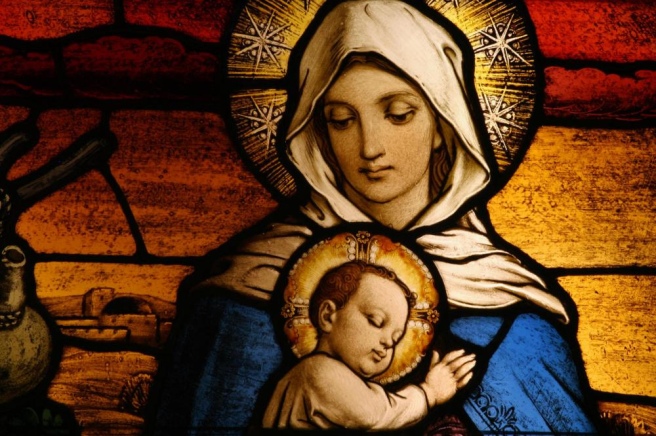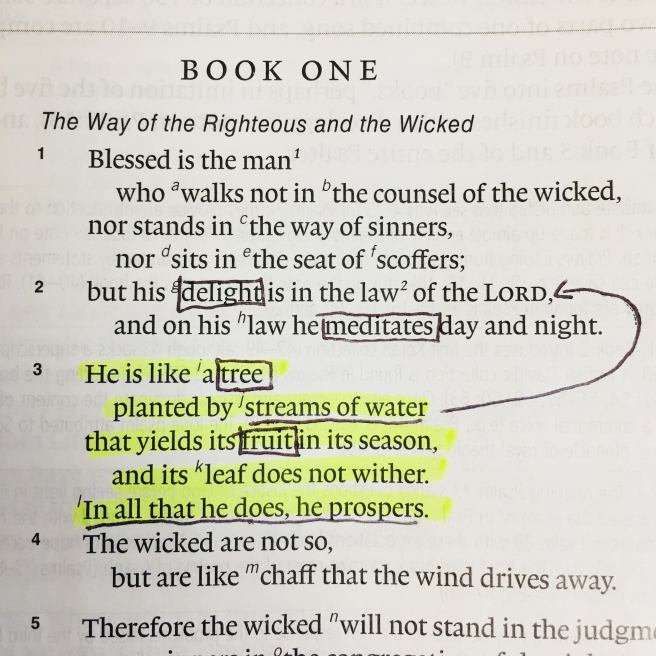
I walked into one of my 2nd grade classrooms to find an unfamiliar face with thick, black-rimmed glasses.
“Mrs. Hughey, we have a new student!” the teacher informed me.
Naturally after asking the child’s name, I asked him whether he had just moved here or if he was coming from another school, to which he replied that he used to go to a Catholic school in our area.
In 2nd grade we’ve been learning about the Law that God gave to Moses and the Israelites, particularly the 10 Commandments. We’ve talked about how one of the reasons that God gave the Law was to show His people that they cannot keep it and need Him as a Savior, as Paul explains in Romans 3:20. Only Jesus Christ was able to keep the Law entirely.
So I thought I was “lobbing my students a softball,” as one of my professors used to say, when I asked them during the lesson who was the one person who had never broken God’s commandments. Immediately the hand of my new student shot up, and I got really excited. Look at this kid! He’s so ready to dive into this new school. Hooray for new student participation and…
“Mary!”
And… there it was. The answer caught me off guard and gave me an unsettled feeling in the pit of my stomach. I tried to coax my new little friend towards the correct answer while simultaneously scowling at my Protestant students to wipe the “you idiot!” look off their faces.
Several days later in a faculty meeting, our head of school was leading us in a devotion on Luke 1:46-55, which is Mary’s song of praise, also known as The Magnificat.
“We tend to shy away from Mary from some reason,” he said. “We have entire Bible studies on women like Ruth or Hannah, but why are we so uncomfortable with Mary?”
As Christmas approaches and the Nativity narrative takes center stage, I’ve found myself pondering this question. Why don’t we as Protestants talk more about this biblical figure? Why do we maybe feel a twinge of awkwardness when we have to look at her character? Why did I (frankly) get a little squirmy in my seat when I heard that we were going to be singing a song called “Blessed Be That Maid Mary” for our church’s Christmas service?
And I think the answer isn’t all that surprising. We hear the perspective, similar to that of my new student’s, that praises Mary a little too highly. We see some (caveat: not all) of our Catholic brothers and sisters praying to her and we get a little freaked out. So we overcompensate. We swing the pendulum in the opposite direction. If you look at church history, it’s kind of just what we do.
But I’d like to propose that there’s something valuable we’re missing when we breeze by this young woman and put her too much in the background of the story. A closer look at Mary doesn’t exalt her; it actually “magnifies the Lord”, which is the prayer of Mary’s heart (Luke 1:46).
The angel Gabriel greets Mary as the “favored one,” and then goes on to confirm that she indeed has “found favor with God” (1:28, 30). Mary is the recipient of God’s favor, perhaps more specifically, His unmerited favor. “Charis” is the root word here in verse 30 that we translate favor, elsewhere most often translated as grace. Grace! The virgin Mary needs grace in the presence of God. She, like all of humanity, needs a Savior, and she calls her Lord just that during her song in verse 47 (“My spirit rejoices in God my Savior”). YHWH looks on her with the same favor, the same grace, with which He looked upon Noah (Genesis 6:8), righteous in His sight not because of their own doing, but because He makes them that way.
And here’s what’s so incredible: because of the “blessed fruit of her womb” (1:42), because of the One who was able to live righteously, God sees those who trust in Him the same way. Paul writes to the church at Ephesus that “He [the Father] chose us in Him [the Son] before the foundation of the world, that we should be holy and blameless before Him” (Ephesians 1:4). Holy. Blameless. Favored. Because of His choosing.
To ignore Mary is to ignore one of the most stunning pictures of our God’s character. He uses the weak, the humble, and the unexpected person to be a part of carrying out His plans in the world. He gives grace to the incapable and the unqualified. Mary bears one of the greatest responsibilities while also receiving one of the greatest blessings not because of her accomplishments, her deeds, or even her purity, but because of the way He sees her.
Rather than neglecting to acknowledge or hurriedly mentioning the virgin during this season, may we examine her life, be encouraged and awestruck by her story, and ultimately stand alongside her in declaring that our favor in His eyes has nothing to do with us.

